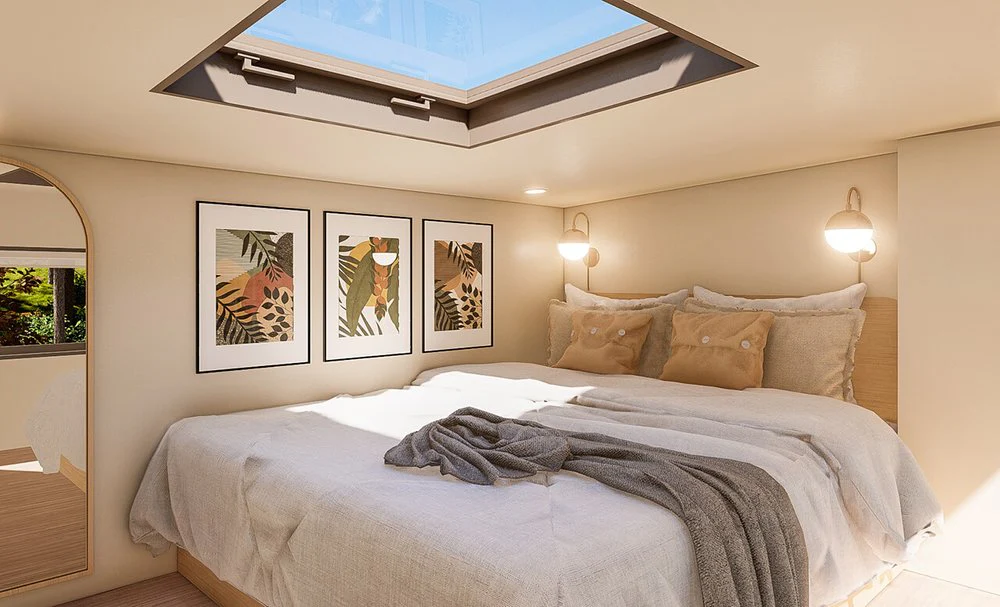Expert HVAC Services Focused on Comfort and Energy Efficiency

Image Source: Canva
Achieving a comfortable and energy-efficient home requires the expertise of professionals who understand the intricacies of HVAC systems. With Expert HVAC Services Focused on Comfort and Energy Efficiency, you can experience the perfect balance of indoor climate control and cost savings. These services ensure that each component of your heating, ventilation, and air conditioning system operates at peak efficiency.
Regular maintenance and targeted upgrades by experienced HVAC technicians are essential for optimal performance. Professional HVAC services also identify potential issues before they become major problems, ensuring long-term reliability and peace of mind. Making informed decisions with the help of seasoned experts leads to a more sustainable and comfortable living environment.
Understanding HVAC Systems
Heating, Ventilation, and Air Conditioning (HVAC) systems are crucial for maintaining indoor comfort and energy efficiency. These systems consist of various components working together to regulate temperature, humidity, and air quality.
Components and Functionality
An HVAC system includes several key components: the furnace, air conditioner, thermostat, ductwork, and vents. The furnace heats air and distributes it through the home via ductwork. The air conditioner cools the air, often using refrigerant within coils.

A thermostat controls the system's operation, maintaining the desired temperature. Ductwork transports air to different rooms, and vents allow air to enter and exit the spaces. Regular HVAC service and maintenance ensure these components operate efficiently, preventing costly breakdowns and extending the system's lifespan.
Importance of Energy Efficiency
Energy efficiency in HVAC systems reduces utility bills and environmental impact. High-efficiency units use advanced technology, such as variable speed motors and smart thermostats, to optimize power consumption.
Proper insulation, sealing of ducts, and routine maintenance like changing filters improve system efficiency. Energy-efficient HVAC systems contribute to better indoor air quality and consistent comfort levels. Investing in energy-efficient models and regular service helps homeowners save money and reduce their carbon footprint.
Choosing the Right HVAC Company
Selecting an HVAC company requires careful consideration of various factors to ensure high-quality service and value. Opting for a local provider can offer additional benefits such as faster response times and familiarity with local climate challenges.
Criteria for Selection
When choosing an HVAC company, experience and expertise are crucial. Look for contractors with a proven track record in handling various systems. Certifications and licensing are essential indicators of reliability.
Service offerings are another important aspect. Ensure the company provides comprehensive services like installation, maintenance, and emergency repairs. Warranty options on parts and labor can also be a sign of trustworthy service.
Why Choose a Local Service Provider
A local HVAC company in Knoxville offers several advantages. Local providers can often respond more quickly to service calls, reducing downtime for essential systems. They are also more likely to understand the specific climate conditions and requirements of the area.
Local companies often have long-standing relationships with local suppliers, which can result in quicker parts availability and lower costs. Additionally, working with a local business supports the community, contributing to local economic growth.
Finally, local providers typically offer more personalized service, fostering a sense of trust and reliability. This personal touch can make a significant difference in customer satisfaction.
Comprehensive HVAC Maintenance
Ensuring optimal performance and longevity for your HVAC system involves routine checkups, addressing common issues, and adopting long-term care strategies.

Routine Service Checklist
Regular HVAC service and maintenance are crucial for efficient operation. Key tasks include:
- Filter Replacement: Clean or replace filters every 1-3 months.
- Thermostat Calibration: Check for accurate readings.
- Inspect Electrical Connections: Tighten and secure any loose connections.
- Check Refrigerant Levels: Ensure proper levels to avoid overworking the compressor.
An annual HVAC service should also inspect ductwork for leaks and cleanliness, ensuring airflow is not obstructed and energy efficiency is maintained.
Troubleshooting Common Issues
Common HVAC problems can cause inefficiencies and discomfort. Frequent issues include:
- Inadequate Heating/Cooling: Often linked to thermostat issues or a clogged filter.
- Unusual Noises: May indicate loose components or motor issues.
- Uneven Temperatures: Can result from blocked vents or unbalanced airflow.
- Short Cycling: Typically caused by thermostat problems or refrigerant leaks.
Addressing these issues promptly can prevent more significant problems and maintain system efficiency.
Long-Term Systemcare
Long-term care ensures your HVAC system remains reliable. Strategies include:
- Seasonal Maintenance: Conduct thorough inspections before summer and winter.
- Upgrade Components: Consider energy-efficient upgrades like variable speed motors.
- Humidity Control: Implement solutions to maintain proper humidity levels.
- System Cleaning: Regularly clean coils and other components to prevent build-up.
By following these practices, the system's lifespan can be extended and ensure consistent performance.
Enhancing Indoor Comfort
Expert HVAC services aim to create a comfortable indoor environment by managing temperature, airflow, humidity, and air quality. These elements are crucial for energy efficiency and overall comfort in any home or office space.
Optimizing Temperature and Airflow
The precise control of temperature and airflow is key to achieving indoor comfort. Properly sized HVAC systems ensure efficient cooling and heating, preventing drafts and maintaining even temperatures. Utilizing programmable thermostats can help in fine-tuning the indoor environment.
Features to look for:
- Variable speed motors: Adjusts speed to meet temperature demands.
- Zoning systems: Allows different areas to be heated or cooled independently.
- Smart sensors: Automates adjustments based on occupancy and usage patterns.
Humidity Control and Air Quality
Maintaining optimal humidity levels is critical not only for comfort but also for health. Dehumidifiers and humidifiers integrated into HVAC systems help achieve balanced moisture levels. Air purifiers and high-efficiency particulate air (HEPA) filters significantly improve air quality.
Components involved:
- Dehumidifiers: Combat excess moisture during warmer months.
- Humidifiers: Add moisture during dry, cold seasons.
- Air Purifiers: Remove pollutants like dust, pollen, and smoke.
- HEPA Filters: Trap fine particles to enhance air purity.
By focusing on these critical aspects, HVAC services ensure a more comfortable and healthier indoor environment.
Energy-Efficient Solutions
Adopting energy-efficient solutions in HVAC systems can significantly reduce utility bills and environmental impact. This section focuses on important techniques and technologies that enhance energy efficiency.

Innovative Technologies in HVAC
One of the latest advancements in HVAC is the use of smart thermostats. These devices automatically adjust the temperature based on user preferences and room occupancy.
Variable Refrigerant Flow (VRF) systems allow for precise temperature control in different zones of a building. VRF systems are highly efficient and can reduce energy consumption by adjusting the refrigerant flow according to the specific cooling or heating needs of each zone.
Heat Recovery Ventilation (HRV) systems are also gaining popularity. HRV systems recover heat from outgoing air and transfer it to the incoming fresh air, thereby maintaining indoor air quality while reducing the need for additional heating.
Best Practices for Reducing Energy Consumption
Regular maintenance is crucial for ensuring the HVAC system runs efficiently. This includes changing air filters, checking for duct leaks, and cleaning coils.
Proper insulation of ductwork helps reduce energy losses. Well-insulated ducts deliver conditioned air more efficiently, reducing the load on the HVAC system and thus lowering energy costs.
Energy audits can identify areas where the HVAC system is wasting energy. Through audits, building owners can implement targeted improvements such as sealing leaks, upgrading insulation, or installing more efficient equipment.
Using programmable thermostats to set different temperatures for different times of the day can also optimize energy use and reduce waste, especially during non-occupancy hours.







.jpg)

